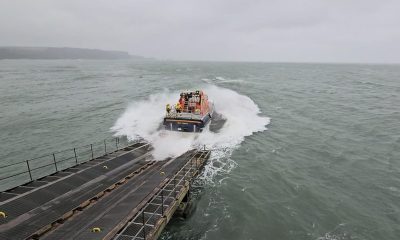Community
Be wary of gulls as breeding season approaches
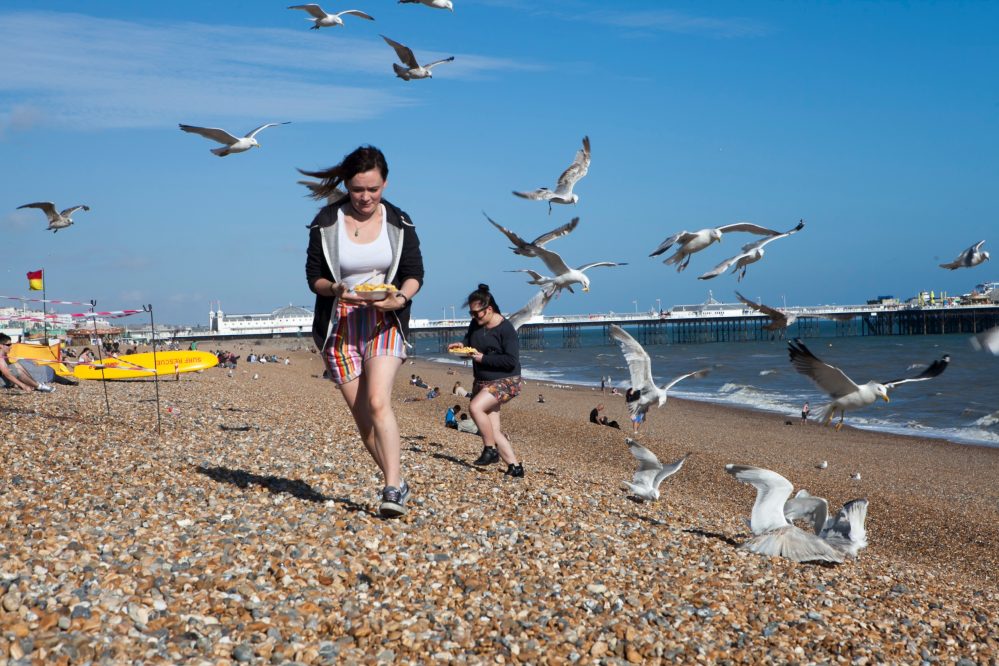
AS families across Wales head to the seaside for the bank holiday weekend, a national trade body is urging people to be wary of gulls as their egg-laying season gets underway.
During the breeding season, gulls have been known to launch attacks on people, says British Pest Control Association (BPCA).
After mating and nest-building in February and March, many gulls will be protecting nests and eggs towards the end of April and into May.
However, BPCA is also reminding people that avoiding gulls wherever possible is always the best course of action as interfering with wild birds, their eggs or nests could lead to prosecution.
The Wildlife and Countryside Act 1981 states that all wild birds and their eggs are protected, but people with the appropriate knowledge on licences, such as BPCA members, can take steps if the birds are causing a public health and safety concern.
Natalie Bungay, Technical Manager at BPCA, said: “We love British birds. All wild birds and their eggs are rightfully protected by law in the UK, so it is absolutely vital that holidaymakers, householders or business owners don’t interfere with them.
“However, gulls can pose a serious safety concern. They have been known to attack people unexpectedly, which can be a frightening experience, especially if they draw blood, which can occasionally happen.
“We often think of gulls as a coastal problem – which they can be in seaside towns where people have fed them regularly. But for some time now they have also been an increasing problem in towns and cities away from the coast too.”
Gulls can live for 25 to 30 years and many weigh around 1kg, with wingspans of around one metre.
Seaside visitors can try to avoid attracting gulls by ensuring picnic foods or chippy take-aways are kept covered or eaten out of sight of gulls where possible.
Nesting gulls can cause problems for homes and businesses both on the coast and inland, as well as at supermarkets and hospitals, as these buildings can offer ideal nesting sites which are difficult to access and proof.
Nests can clog gutters or chimneys, which may cause water overflows, or potential issues with carbon monoxide, as well as bringing a risk of secondary infestation from bird mites, ticks, fleas and beetles.
Properties are also at risk from bird droppings, which can carry some harmful bacteria and diseases, as well as even cause slips, trips and falls where they build up.
Natalie added: “Gulls are also protected by the law, so it really is important to seek professional help.
“BPCA members are trained in bird control and will be able to offer a management plan that will alleviate the issue.
“There are a variety of bird-proofing measures available, all of which will deter birds without causing them harm, and as gulls are large and heavy, any proofing measures need to be suitable for the job, very heavy duty and correctly installed by a professional.
“Bird prevention, proofing and control is a highly specialised area requiring specific equipment and techniques. Pest professionals are required to try all reasonably practicable non-lethal bird control methods before they consider lethal control.
“Always consult a BPCA member before considering any form of bird management. You could be prosecuted if you illegally interfere with a bird, its nest or eggs.”
BPCA members are trained, experienced professionals with access to a range of specialist products not available to the public, as well as being regularly assessed to the British Standard in Pest Management BS EN 16636.
BPCA members are also endorsed by the Government via the TrustMark quality scheme.
To find a professional pest controller visit bpca.org.uk/find
Community
Pub reopens with VIP club launch and free drink offer
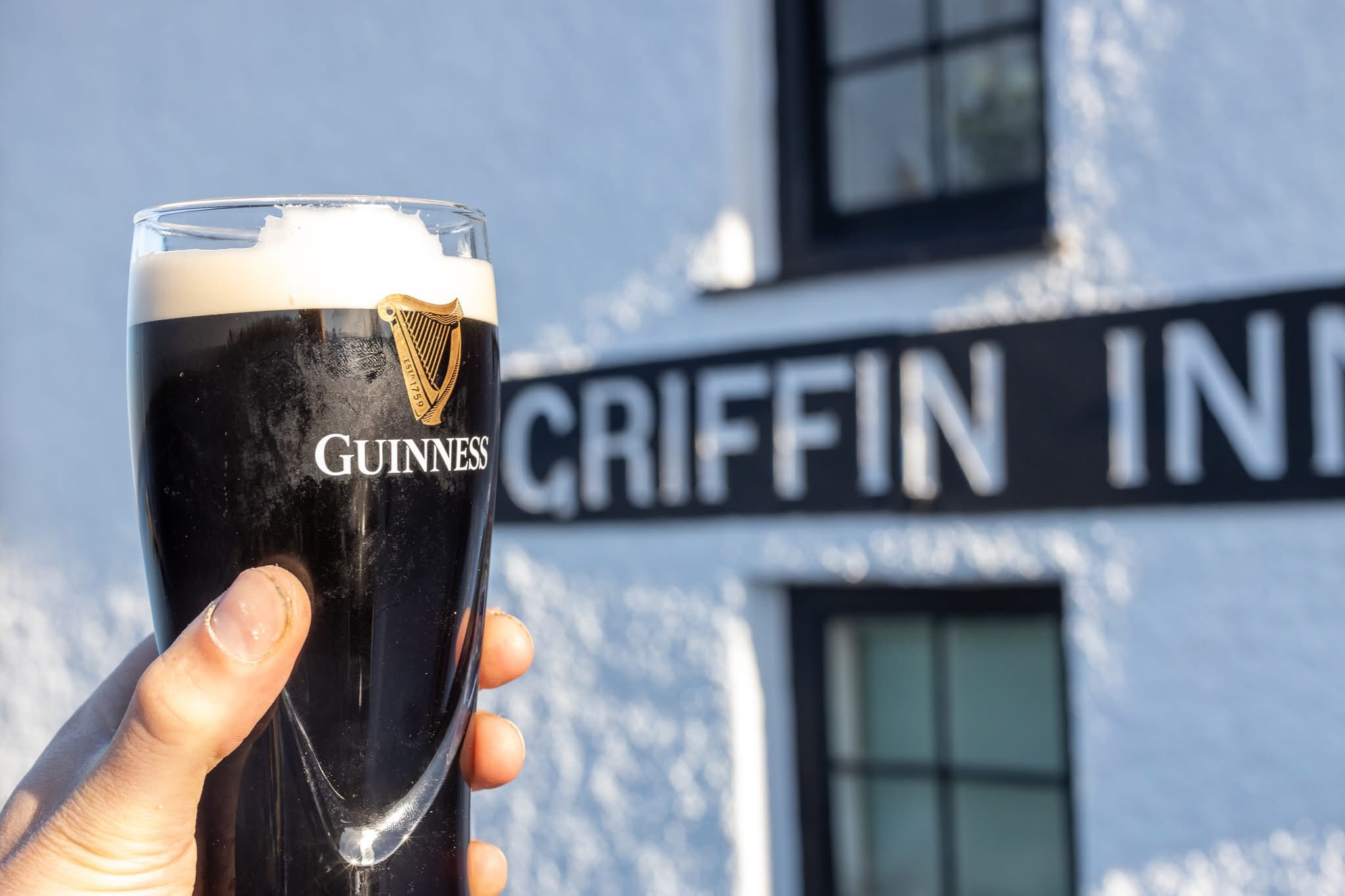
A POPULAR Pembrokeshire pub is reopening its doors this week with a new loyalty scheme aimed at rewarding regular customers.
The Griffin Dale Pembrokeshire will reopen for the season on Thursday (Feb 26), with owners Sian and Simon promising roaring fires, fresh seafood and a warm welcome for returning customers.
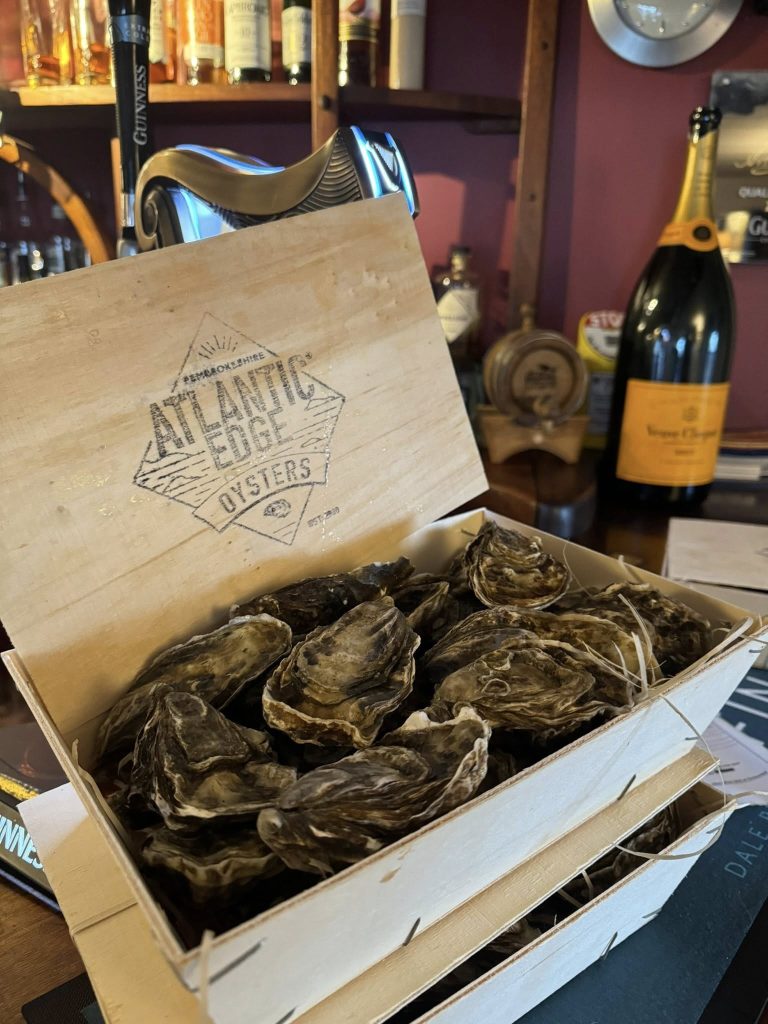
To mark the reopening, the team has launched a new Griffin VIP Club, designed to give regular visitors small perks throughout the year.
The scheme includes a loyalty drinks stamp card, occasional meal offers, discounts on drinks, birthday treats and early access to events and promotions.
As part of the launch celebrations, customers visiting on reopening day will receive a complimentary drink along with 20% off food and drinks during a special “Thirsty Thursday” promotion.
The owners said the club was intended as a simple way of giving something back to loyal customers rather than a formal membership programme.
“We’re so excited to be reopening for the season and welcoming everyone back,” they said. “It’s just our way of saying thank you to those who support us and pop in regularly.”
Customers interested in joining the VIP Club can sign up at the bar when visiting the pub.
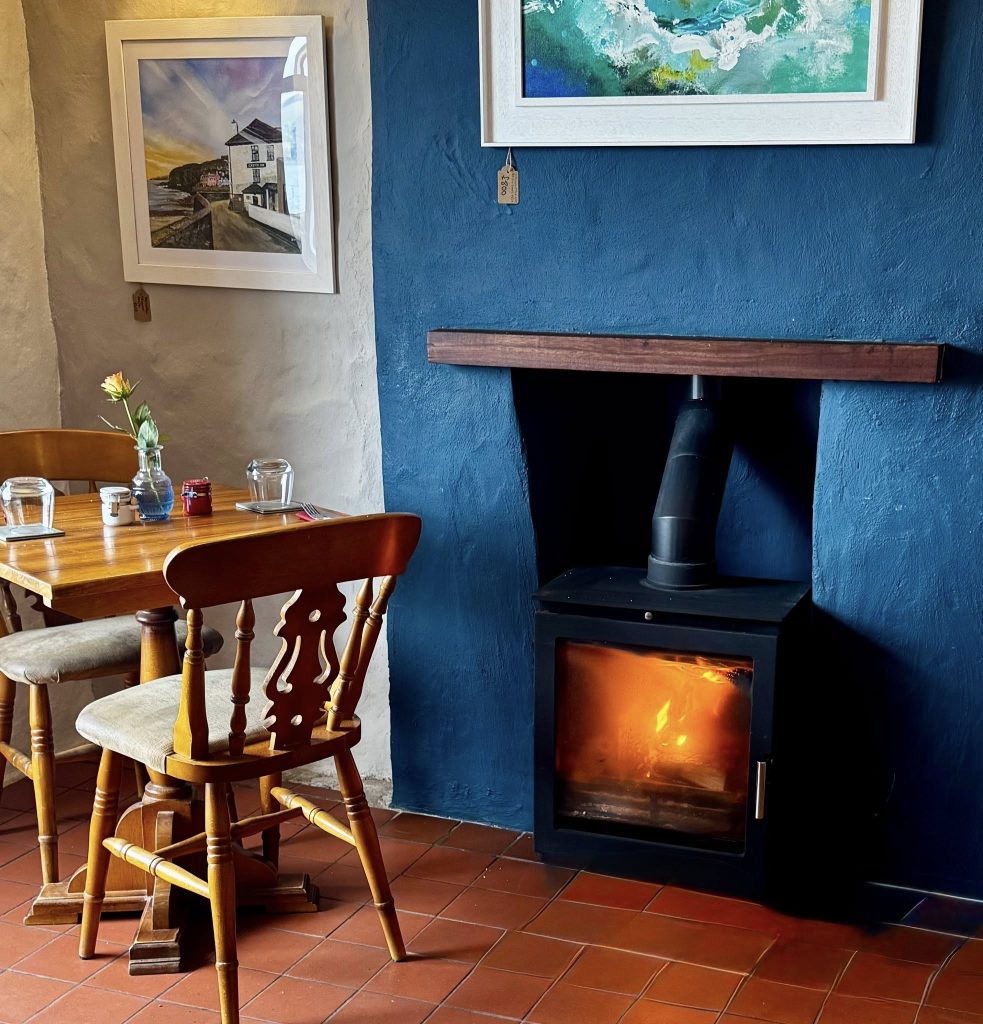
Business
Bosherston Bistro 10pm alcohol licence granted by council
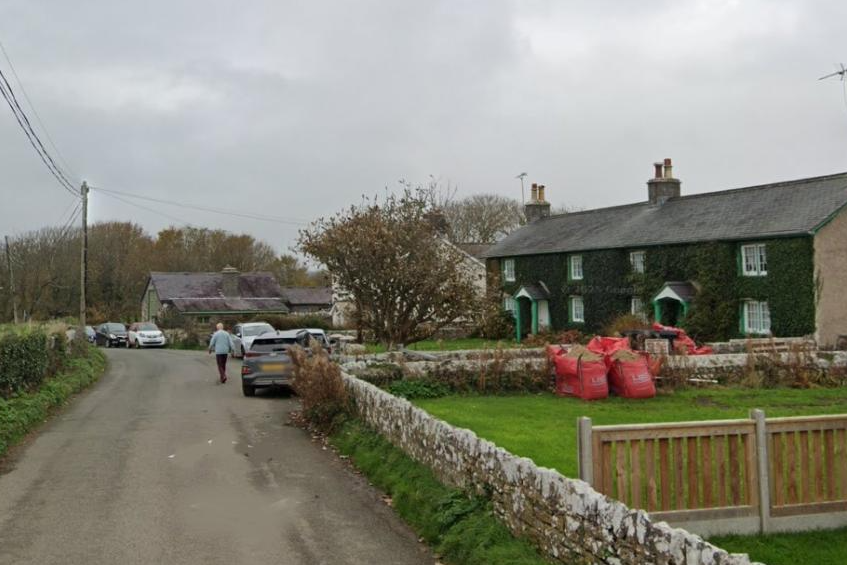
A CALL to allow the selling of alcohol as late as 10pm at a rural beauty spot former village tearoom which objectors fear will “create an absolute nightmare” exacerbating an already growing issue with antisocial behaviour from holidaymakers, has been given the go-ahead.
At Pembrokeshire County Council’s February licensing sub-committee, members considered an application by Sarah Jane Partridge and Robert John Secrett for a new premises licence at Bosherton Bistro, Old World Cottage, Bosherton.
A report for members said it was proposed the premises, formerly a tearoom called ‘Ye Olde Worlde Café’ would open 8am-10pm, selling alcohol from 9am on and off site, seven days a week in the village.
Since the proposal for the site, close to the village pub The St Govan’s Inn, was publicised, 13 objections were received, including Stackpole and Castlemartin Community Council.
In its submissions, the community council said it “will cause a significant public nuisance in the residential area”.
It said the ordinarily tranquil Bosherston, with its neighbouring beauty spot attractions of the lily ponds and St Govans currently has four well-established camp sites “which already frequently cause late night disruption, littering and anti-social behaviour caused predominantly by intoxicated individuals”.
It went on to say: “Instances of aggressive behaviour and trespass are already prevalent within the village by visitors under the influence of alcohol.”
Concerns raised by members of the public included fears of “an increased problem with drunkenness, drink driving and antisocial behaviour,” and it would “make life for the residents in the immediate area an absolute nightmare”.
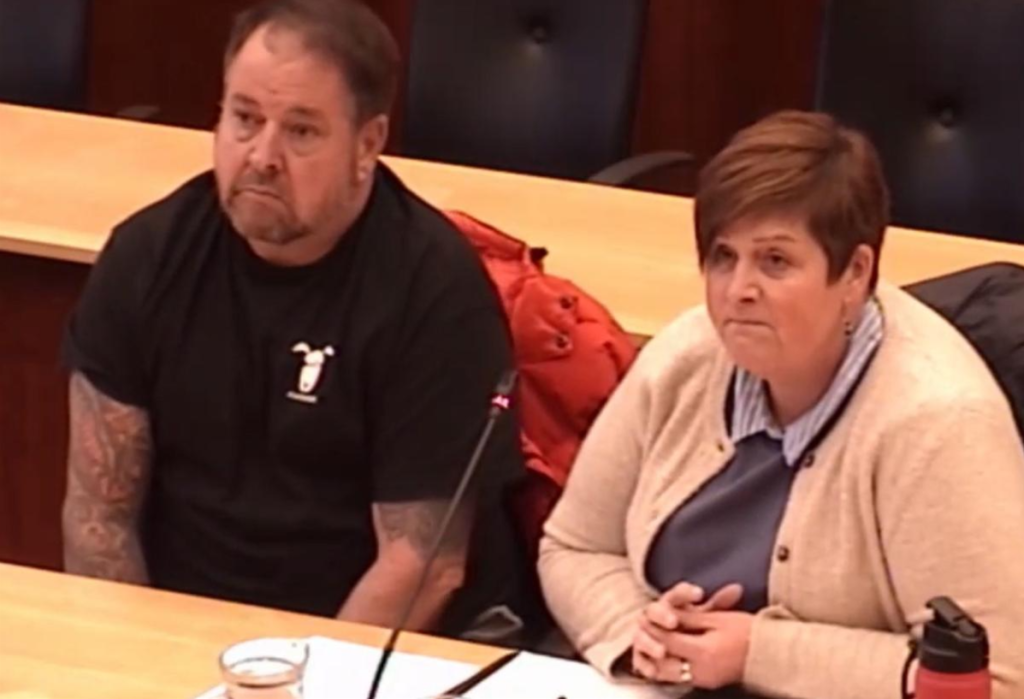
Speaking at the meeting, applicant Sarah Jane Partridge said they shared “the same fundamental aims as the residents,” with the scheme “not about creating a drinking venue but a food-based family bistro”.
She stressed that campers were already able to buy alcohol from the pub, or bring their own to the campsites, adding the 84-cover bistro would introduce safeguarding measures around the sale of any alcohol; off-site sales consisting of ‘gift-set’-style alcohol craft packages rather than “cans of lager”.
Objector Rik Guly said there had been many public order incidents over the years in the 36-home village relating to visitors from the campsites, as well as empty beer bottles, tampons and tins littering the area, one farmer also having his ‘honesty box’ stolen on several occasions; the application “effectively throwing a catalyst for more alcohol consumption and more public disorder”.
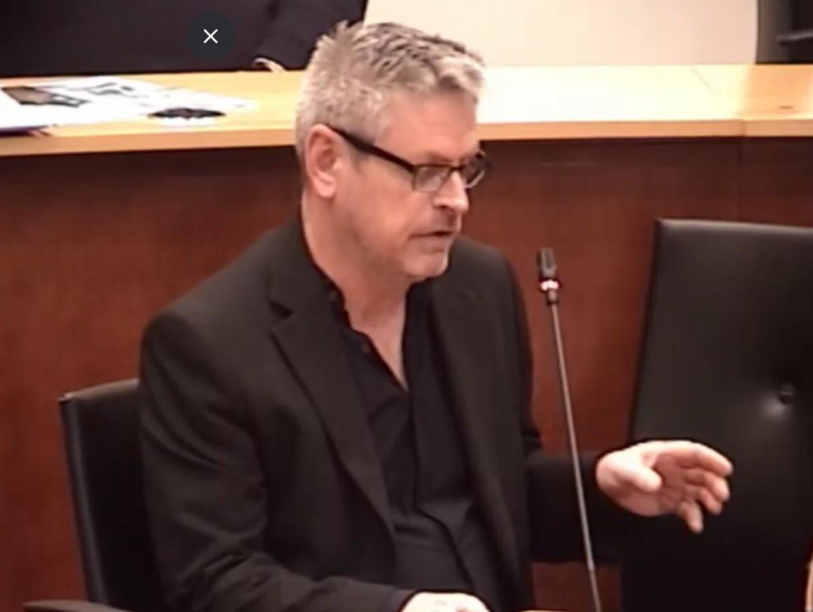
He also raised concerns it could restrict access along the narrow road to the nearby coastguard building for emergency services.
Another objector Clare Strudwick said “almost half the village” was objecting to the scheme which would cause “unacceptable public nuisance”.
Representing the community council, local county councillor Steve Alderman, who once farmed in Bosherston himself, said post-Covid visitor interest in the area had been raised “immeasurably,” with huge numbers attracted to the area.
He said that, while “antisocial behaviour, both physical and verbal” and “a complete lack of respect for what is a marvellous-looking village” was “society’s fault,” the resident’s had a right to enjoy their quality of life.
After the committee deliberated, chair Cllr Tony Wilcox said they had considered the range of objections but considered they were “not of sufficient seriousness to consider rejecting the application”.
The licensing application was approved, objectors hearing that decision could be appealed within 28 days.
Community
Police step up community engagement in Milford Haven neighbourhood

RESIDENTS in Howarth Close, Milford Haven, may have noticed an increased police presence in the area on Tuesday (Feb 24), as officers carried out door-to-door visits to promote a new community messaging service.
Members of the Neighbourhood Policing and Prevention Team spoke directly with residents to encourage sign-ups to Dyfed-Powys Connects — a free email alert system designed to keep communities informed about local policing matters.
The service provides updates on crime, antisocial behaviour, policing activity, community events and crime prevention advice tailored to specific neighbourhoods.
Officers say the initiative aims to strengthen communication between police and the public, helping residents stay informed about issues affecting their area.
Residents can sign up to the free service online at: https://orlo.uk/3POxP
-

 Health6 days ago
Health6 days agoConcerns grow over Bronglais stroke plans as politicians demand clarity
-

 Local Government5 days ago
Local Government5 days agoCandidate who withdrew from Hakin race will still appear on ballot paper
-

 Crime5 days ago
Crime5 days agoBBC documentary reveals local man murdered mother then lived with her body
-
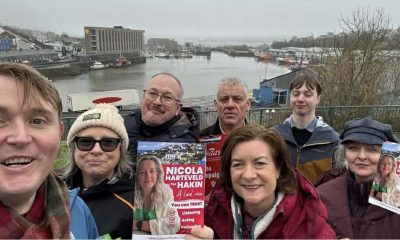
 Local Government6 days ago
Local Government6 days agoFirst Minister left red-faced as Labour candidate pulls out during Hakin campaign visit
-
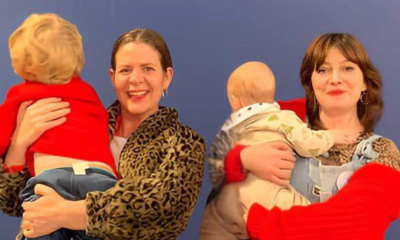
 Entertainment6 days ago
Entertainment6 days agoNew theatre show explores realities of motherhood in Pembrokeshire
-

 Business6 days ago
Business6 days agoPembrokeshire businesses ‘squeezed to breaking point’ amid economic pressures
-
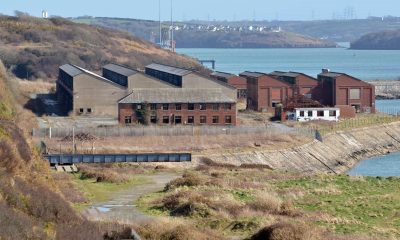
 News6 days ago
News6 days agoThousands of potentially contaminated land sites recorded across Pembrokeshire
-
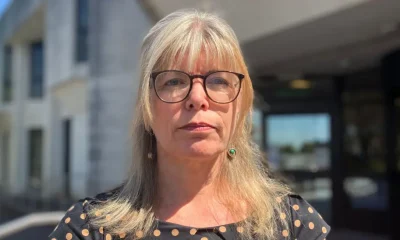
 Crime7 days ago
Crime7 days agoTeacher stabbed by pupil criticises school weapon scanner plans










